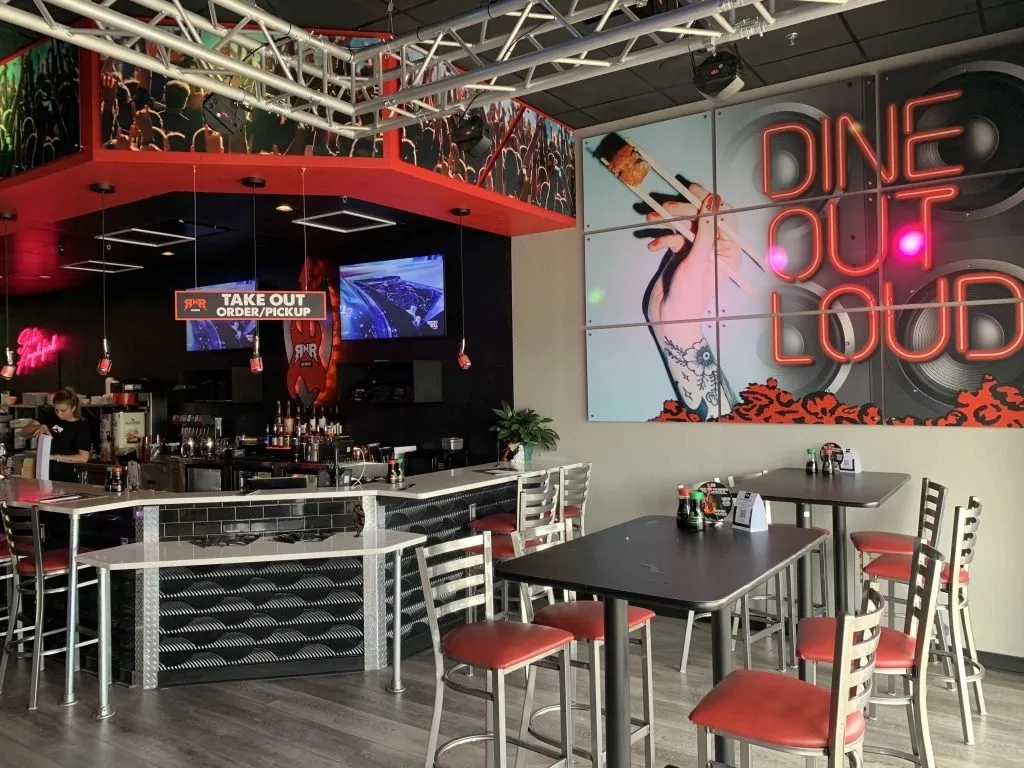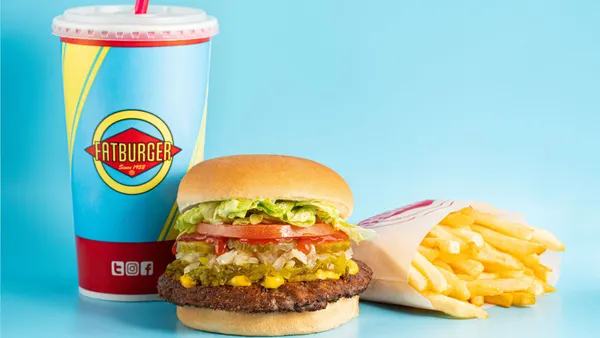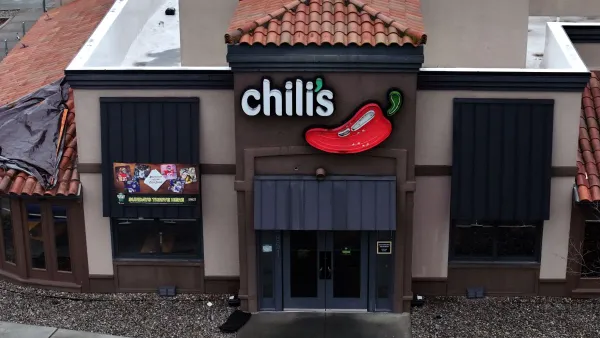Editor’s note: This article is part of an ongoing franchise series, which highlights brands that are new to or aggressively expanding via franchising. Is your restaurant starting to franchise? Email us at [email protected].
Prior to meeting his future wife, Rock N’ Roll Sushi founder Lance Hallmark had never eaten sushi before. That changed when the pair worked together at Hard Rock Casino in Biloxi, Mississippi, in the 2000s.
After Gerri Mach Hallmark turned him on to the cuisine, Lance has loved it ever since. In 2010, the couple opened the first Rock N’ Roll Sushi in Mobile, Alabama, Rock N’ Roll Sushi CEO Chris Kramolis said.
The concept grew organically, reaching five units by 2014 before beginning to franchise that same year. Kramolis said the Hallmarks’ efforts to make sushi approachable contributed to the chain’s success.
“It’s the rock and roll vibe that makes it unique and different to other sushi concepts,” Kramolis said. “You can come in there in hats and shorts. It’s not a high-end sushi place.”
When guests come into the restaurant, they are greeted by TV screens playing music videos of modern and classic rock and roll songs, Kramolis said.
“[The music] is a big part of what we do and the approachability of the concept,” Kramolis said. “We crank up the music.”
The restaurant, which has a menu that is divided into “Opening Acts,” “Classics,” “Green Room, “Headliners,” “Raw Tracks,” “Kids Rock” and “After Party” sections, offers Americanized versions of sushi, many of which can be fried or baked. Rolls also have names like Metalhead Roll, Pyro Roll, and Thriller that emphasize the rock and roll vibe. Guests can also pick items off of its “Hibachi Backstage” menu, which offers hibachi that is grilled to order in the back-of-house, Kramolis said.
When Kramolis first heard about the concept, he had a hard time understanding its success. Kramolis was an area developer and multi-unit franchisee for Tropical Smoothie Cafe for 14 years, but left the brand in 2017.
“When you hear the sentence, ‘My friend is blowing up a sushi concept in Alabama,’ your brain has a hard time processing. You’re like, ‘I don’t believe you,’” Kramolis said.
The chain’s ability to attract demographics that were unfamiliar with sushi, like local families and blue collar workers. is part of the concept’s popularity, he said.
Kramolis originally signed up to become a franchisee in 2019 and opened his first unit in Little Rock, Arkansas, later opening a second unit in the market and a third in Tallahassee, Florida. In 2020, he became Rock N’ Roll Sushi’s CEO after Tropical Smoothie Cafe’s founder, Eric Jenrich, bought a controlling interest in the company. The two were longtime friends and Kramolis introduced Jenrich to the brand. The pair recruited colleagues they trusted as multi-unit franchisees, which is how the brand landed some of its larger deals.
The company also uses equipment that helps inexperienced staff members make sushi, he said. For example, it uses a sushi rice sheet machine that will create a perfect sheet of rice so staff just have to roll the ingredients into the rice.
This strategy has worked and the brand has grown to 62 units in nine states, with many more in the works, he said. The company is currently developing in Las Vegas, Colorado Springs, Colorado, and Phoenix, in addition to markets in the Southeast.
Ideal real estate is between 1,600 and 2,400 square feet. Ninety percent of its locations are within strip malls, and about 30% to 40% of its revenue comes through off-premise channels, Kramolis said. The company has experimented with pickup windows at the front of its stores so that delivery drivers don’t need to enter restaurants to pick up orders. The chain is testing the window design in a location in Conway, Arkansas, and it will be included at a unit in Colorado Springs, Colorado, he said.
When the company brings on new franchisees, operators go through an extensive, weeklong training process at corporate headquarters in Destin, Florida. Then, operators undergo four weeks of training at a certified training store where they learn to make sushi, Kramolis said. Corporate helps train franchisees during the week leading up to the opening and then for the first full week of business.

Development plans: Rock N’ Roll Sushi aims to reach 250 units in five years, Kramolis said. The company plans to keep growing in Arizona now that it is entering Phoenix. It signed a deal earlier in the year in Tucson and hopes to grow further in Nevada and Colorado. Rock N’ Roll Sushi will continue its expansion across the Southeast, including within Nashville as well as Texas, where it has three stores in Houston. Kramolis expects Texas to be a big market for the chain. The company also has units in Florida, with a development deal for nine units in the Panhandle. It also signed a 35-unit deal to develop across central and southwest Florida, with the first locations to open in Tampa and Naples this year. Additional units will open in cities from West Palm Beach to Daytona Beach and Orlando areas. Long-term, the company wants to move further north and east, reaching areas like Charlotte, North Carolina, and Virginia.
Ideal franchisees: The company targets experienced multi-unit operators who could use an Asian brand to help round out their portfolios, Kramolis said. The company will work with single-unit operators, especially if they are looking to open Rock N’ Roll Sushi units in smaller markets. For example, it is in the process of opening a restaurant in Owensboro, Kentucky, with a single-unit operator. But for larger markets, like Dallas, it would expect to have a five-unit minimum since one unit wouldn’t have any impact in a major city, he said.














